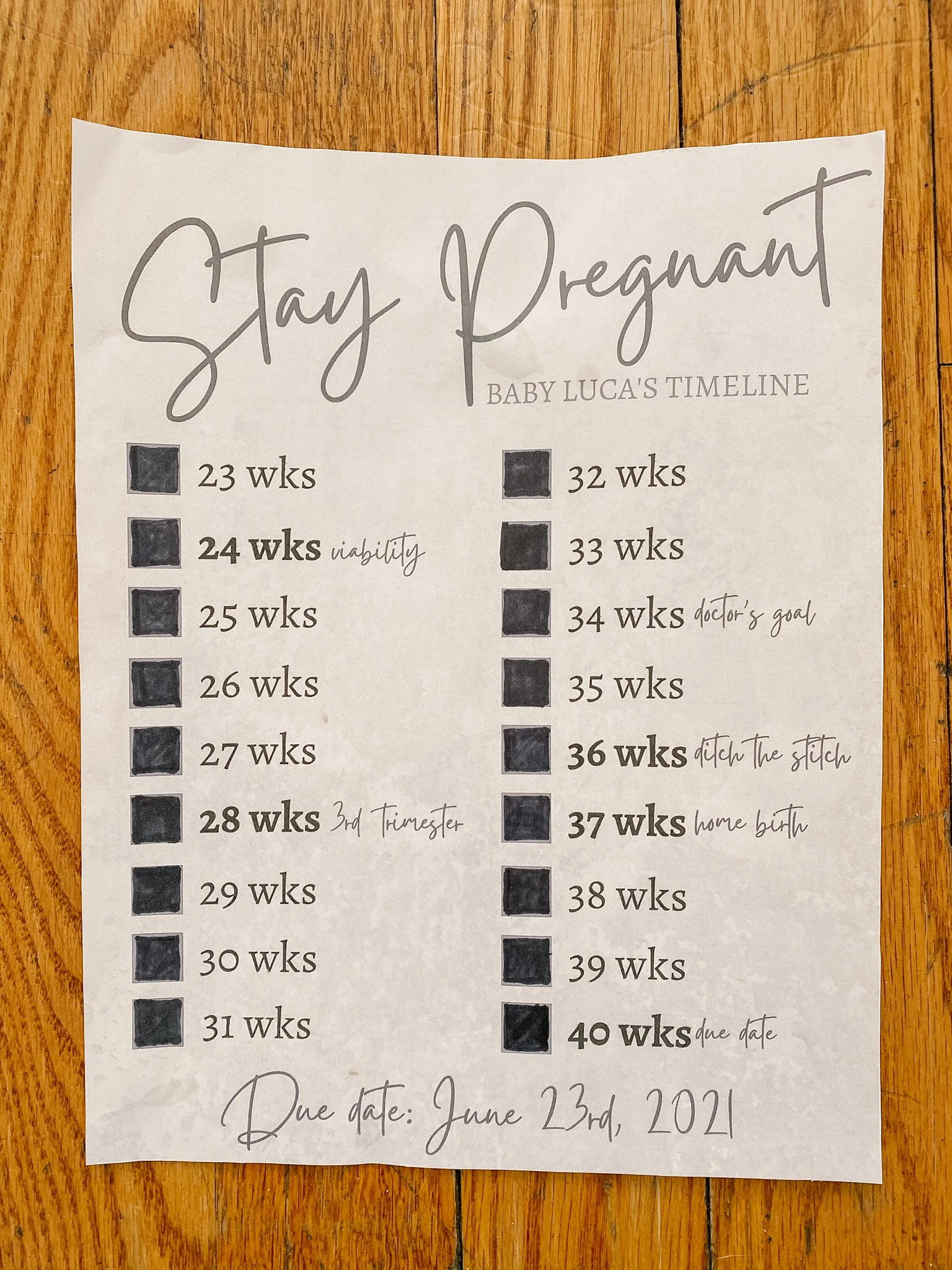Darcy’s Strory
In late 2019 I found out I was pregnant for the first time. Physically, everything was going smoothly. Mentally it was a bit more of a struggle. I had always thought I was barren, and since I was feeling so good physically, I had a hard time believing that I was *actually* pregnant or that it would stick. Every few days/weeks, I would take yet another pregnancy test just to ensure I was still pregnant.
By the time my second trimester rolled around, I was able to breathe a little easier as all my research told me chances of loss diminish significantly after 12 weeks. At approximately 14 weeks, I started having some pelvic pain which resulted in waddling when I walked. My bump wasn’t nearly big enough to warrant a waddle, so I was a bit concerned. Whenever I brought my pelvic pain up, everyone (including doctors) assured me it was a normal symptom. This was my first pregnancy, so I didn’t even question it as I had no experience or knowledge base to go off of.
Fast forward to my 20-week gender scan in February 2020 - still in the height of the pandemic - when we had planned a video call with friends and family immediately following my ultrasound to open the envelope and find out the gender together. The ultrasound appointment took a bit longer than usual as they requested to perform a transvaginal ultrasound. Knowing what I do now, this should’ve been my first indicator that something was amiss. I was then diagnosed with a short cervix. I wasn’t told a lot of information, other than my chance of preterm labour was high and that I had to immediately go on bedrest and start taking progesterone. Feeling scared and confused, I then had to head home and hop on the video call to find out our baby’s gender. It was probably the most bittersweet moment of my life - I was excited to find out whether our bean was a boy or girl but terrified for the future of my pregnancy, and it was a lot to have to process in front of all my friends and family.
After a few weeks of progesterone, bed rest, and weekly ultrasounds, my cervix was still shortening. In those weeks, I tried to keep life as normal as I could; I was still working but trying to do so while lying down. When I went for my routine ultrasound at 23 weeks and three days, I was told that I had to immediately head to another hospital across town for an emergency cerclage (stitch in my cervix to keep it from shortening even more). You only have until 24 weeks to get a cerclage placed, so we were running out of time. Still, amidst a pandemic, we rush to the other hospital, and I’m left waiting alone as my husband wasn’t allowed up until I was admitted. They asked what I would like to do, and the only information I was given was that having the cerclage surgery could save my pregnancy, but it could also break my water and put me into early labour at not even 24 weeks. My husband fought tooth and nail to get in to make that decision with me, and in all honesty, what helped us make that decision was the Facebook group Incompetent Cervix Support Group. While in the hospital waiting room, I wrote a post to ask about cerclages and how those who’ve had them made the decision to get it. I received nearly 80 replies, and most were overwhelmingly positive, from “the stitch saved my baby” to “I couldn’t get the stitch, if you can, DO IT!”. Hearing first-hand experiences from women who had been in my exact shoes provided more information than any doctor or website had and is ultimately what helped us make the decision to get the stitch.
The cerclage surgery was a whole other story, but I’ll save that for another time. At that point, I knew I couldn’t work anymore and devoted all my energy to save my pregnancy. After a few days of recovery, four months of continued bed rest, progesterone, and regular ultrasounds, I had actually made it to term. I had originally hoped for a home birth with a midwife, but due to my situation, that had become a pipe dream. The next thing I knew, 36 weeks came and went, and my care was transferred to my midwife as I wasn’t high risk anymore! Baby kept cooking and actually came at 40 weeks and four days, which truly is a miracle considering I had been told at 20 weeks he could come “any day.” We almost got our home birth - made it to 9cm unmedicated - but due to some complications ended up at the hospital. Although my delivery was extremely long and hard, I consider myself very lucky to not call it traumatic as I know so many women have traumatic births. When I think about it, I have more trauma from my pregnancy than from delivery.
What am I hoping for by sharing my story? Well, to instill hope for one. I know success stories truly helped me get through the long days of bed rest. Also, to raise more awareness - I was so blindsided by this diagnosis and frustrated that I received little to no information from medical staff. The majority of what I now know about incompetent cervix is from my own research. The reality is that you have to be your own advocate which is really hard to do when you're diagnosed with something you know nothing about. I'd also love to see earlier cervical checks in pregnant women. The more incompetent cervix is common knowledge, the more we can advocate for early cervical checks. There were only three short weeks between my diagnosis and my emergency cerclage - had I been checked earlier, my cerclage may not have needed to be an emergency.
Although my story was thankfully a success, the process you go through with an incompetent cervix is the same. I lived every single day in fear, worrying, "is this the day I lose my baby?" "will I go into labour today?". You're on the constant edge of the worst happening, and the irony is that you're on bed rest with literally nothing else to do but worry. It's torture, and I wouldn't wish it upon anyone. Having emergency surgery while pregnant is terrifying as well, and if it's preventable through earlier cervical checks, why aren't we doing them? I was very open about my entire journey, and although my baby is now six months old, I still get messages on a weekly basis from women dealing with incompetent cervix. This is why it needs to be talked about. Pregnant women have questions, and we have to look to each other for the answers.


